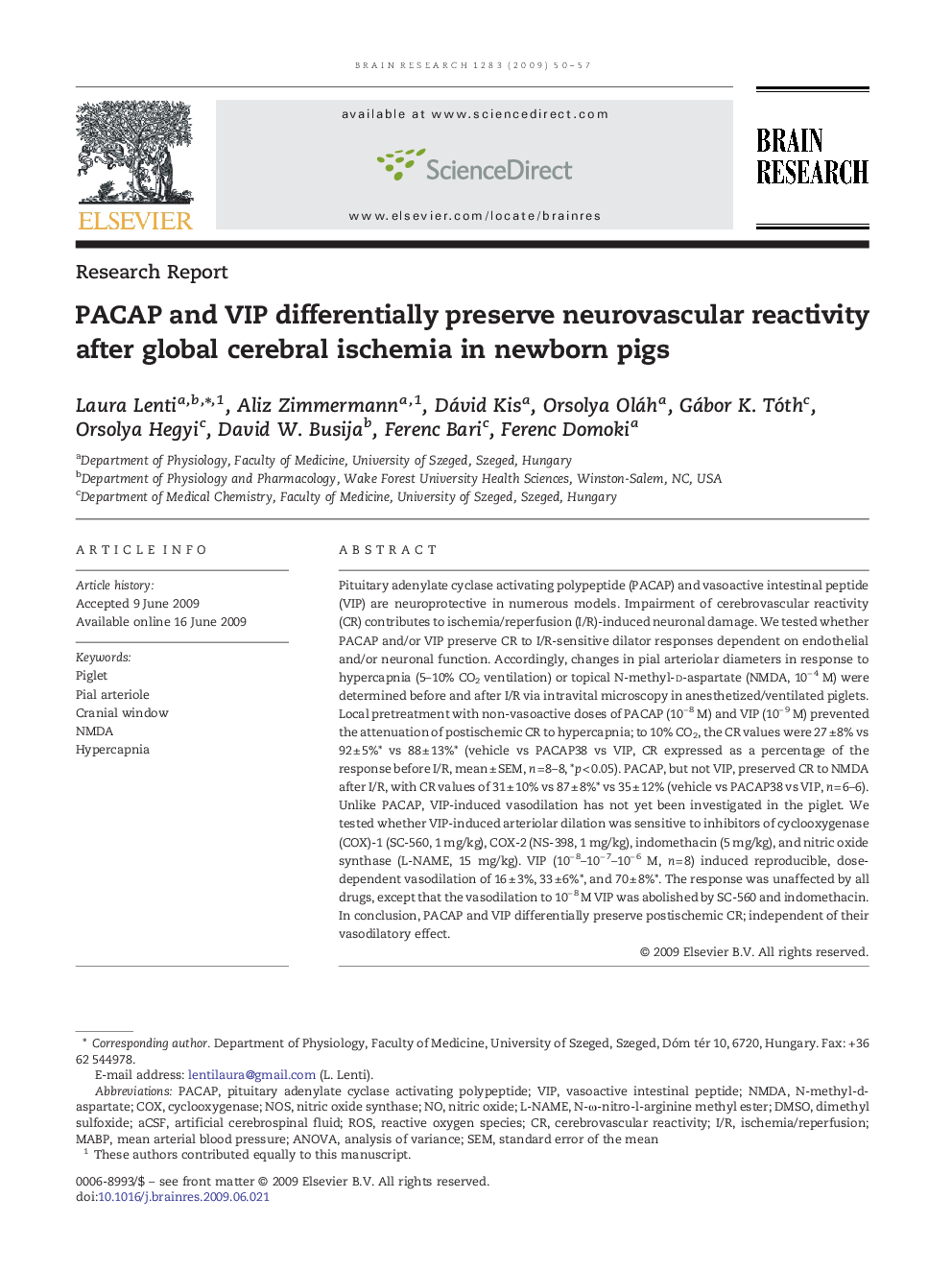| Article ID | Journal | Published Year | Pages | File Type |
|---|---|---|---|---|
| 4328130 | Brain Research | 2009 | 8 Pages |
Pituitary adenylate cyclase activating polypeptide (PACAP) and vasoactive intestinal peptide (VIP) are neuroprotective in numerous models. Impairment of cerebrovascular reactivity (CR) contributes to ischemia/reperfusion (I/R)-induced neuronal damage. We tested whether PACAP and/or VIP preserve CR to I/R-sensitive dilator responses dependent on endothelial and/or neuronal function. Accordingly, changes in pial arteriolar diameters in response to hypercapnia (5–10% CO2 ventilation) or topical N-methyl-d-aspartate (NMDA, 10− 4 M) were determined before and after I/R via intravital microscopy in anesthetized/ventilated piglets. Local pretreatment with non-vasoactive doses of PACAP (10− 8 M) and VIP (10− 9 M) prevented the attenuation of postischemic CR to hypercapnia; to 10% CO2, the CR values were 27 ± 8% vs 92 ± 5%⁎ vs 88 ± 13%⁎ (vehicle vs PACAP38 vs VIP, CR expressed as a percentage of the response before I/R, mean ± SEM, n = 8–8, ⁎p < 0.05). PACAP, but not VIP, preserved CR to NMDA after I/R, with CR values of 31 ± 10% vs 87 ± 8%⁎ vs 35 ± 12% (vehicle vs PACAP38 vs VIP, n = 6–6). Unlike PACAP, VIP-induced vasodilation has not yet been investigated in the piglet. We tested whether VIP-induced arteriolar dilation was sensitive to inhibitors of cyclooxygenase (COX)-1 (SC-560, 1 mg/kg), COX-2 (NS-398, 1 mg/kg), indomethacin (5 mg/kg), and nitric oxide synthase (L-NAME, 15 mg/kg). VIP (10− 8–10− 7–10− 6 M, n = 8) induced reproducible, dose-dependent vasodilation of 16 ± 3%, 33 ± 6%⁎, and 70 ± 8%⁎. The response was unaffected by all drugs, except that the vasodilation to 10− 8 M VIP was abolished by SC-560 and indomethacin. In conclusion, PACAP and VIP differentially preserve postischemic CR; independent of their vasodilatory effect.
